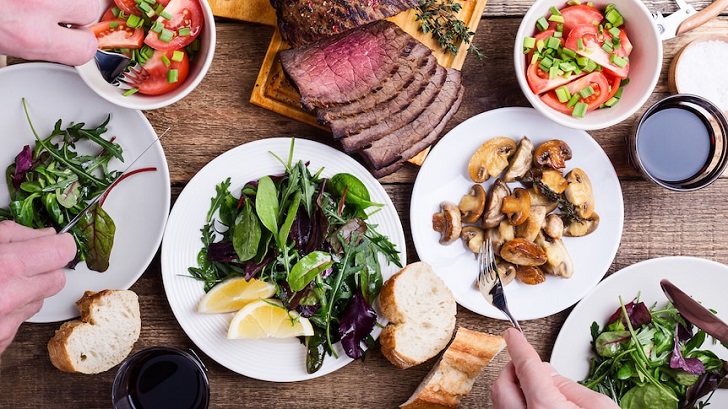Dinner is an essential meal that provides sustenance and fuels the body for the rest of the evening. Regarding the ideal time for an early dinner, opinions vary. Some prefer an early dinner, while others prefer to eat later in the evening. But what is the ideal time for an early dinner, and how can it affect your overall health?

KRUPA/ PEXELS | Eating early and early to bed is always an age-old practice by our elders
The Ideal Time for an Early Dinner
Health experts say the ideal time for an early dinner is between 5:00 p.m. and 6:00 p.m. This timing allows for proper digestion and ensures the body has enough time to metabolize the food before bedtime. Having dinner earlier in the evening also helps to prevent overeating and snacking later on, which can lead to weight gain and other health issues.
Benefits of Eating an Early Dinner
Eating an early dinner has several benefits, including improved digestion, better sleep quality, and weight management. When you eat earlier in the evening, your body has enough time to digest the food before going to bed. This can prevent digestive issues such as heartburn, acid reflux, and indigestion. In addition, eating an early dinner can help improve sleep quality by allowing the body to rest and recharge without the digestive system working overtime fully.
Eating an early dinner can also help with weight management. Eating earlier in the evening makes you less likely to overeat or snack before bedtime. This can prevent unnecessary calorie intake and help with weight loss or maintenance. Additionally, eating earlier in the evening can help regulate blood sugar levels and reduce the risk of developing type 2 diabetes.

Eugene/ File Image | Eating an early dinner is like giving your body a head start on digestion
Risks of Eating Late Dinners
Eating dinner late in the evening can have several negative effects on the body. It can interfere with digestion, disrupt sleep patterns, and contribute to weight gain. When you eat late at night, your body has less time to digest the food before bedtime, which can cause digestive issues such as heartburn, acid reflux, and indigestion. This can lead to poor sleep quality and leave you feeling sluggish and tired in the morning.
Eating late at night can also disrupt your sleep patterns. When you eat a heavy meal before bedtime, your body is working to digest the food, which can interfere with sleep quality and lead to insomnia. Eating late at night can also contribute to weight gain and other health issues. Late-night snacking and overeating can lead to unnecessary calorie intake and contribute to weight gain and obesity.

Getty Images/ ABC | The timing of meals can affect weight loss efforts
Tips for Eating an Early Dinner
If you want to start eating an early dinner, here are a few tips to help you get started:
- Plan your meals: Planning your meals can help you stay on track and avoid last-minute snacking or overeating.
- Stick to a regular eating schedule: Eating meals simultaneously daily can help regulate digestion and improve overall health.
- Choose healthy, nutrient-dense foods: Eating various nutrients can give your body the fuel it needs to function correctly.
- Avoid late-night snacking: If you do get hungry before bedtime, try to choose healthy, low-calorie snacks such as fruits, vegetables, or nuts.




